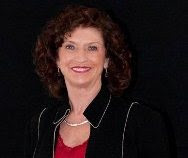Mentoring comes in many forms. In Toastmasters, mentoring may be a simple as encouraging someone to quell the stage fright and relax. The butterflies do not always flay in formation. Even seasoned speakers still have “stage nerves” from time to time.
Mentoring may be assisting someone to reduce the number of Uh, Ah, Oops, filler words such as “and “ or “so.” We each have unconscious filler words or phrases. A mentor will hear these words with objective “fresh ears.”
We may have unconscious mannerisms or repeating one specific gesture too frequently.
Many of you know that I currently work in financial education. I obviously enjoy finances; however, my college economics professor was as exciting as watching grass grow. We managed to stay awake most of the time in class by counting his series of mannerisms. He would run his fingers through his thinning hair, straighten his tie, adjust his horn rimmed glasses, fiddle with his pen and ruffle his papers. We counted how many of this series of mannerisms he indulged in each hour. The man was brilliant but certainly not an engaging speaker. He certainly would have benefitted from a Toastmasters mentor.
Gently assisting him to add vocal variety, reduce the mannerisms, and even add a dash of humor would have made his class for more palatable. Unfortunately, that did not occur in my 3 years of enduring his classes.
Have you ever witnessed a speaker who spoke in a monotone or used annoying gestures or was as entertaining as watching paint dry? All of us have observed a speaker who “ah’d” us to boredom. One of my fellow Toastmasters sent me this link http://www.youtube.com/watch?v=ThEAO0lt4Dw. You will recognize the speaker.
Mentors assist us in seeing ourselves as others will see us; however, a highly accomplished mentor will guide us as swiftly as we are ready to receive the information.
John Crosby’s statement is quite explicit, “Mentoring is a brain to pick, an ear to listen, and a push in the right direction.”
Mentoring is of tremendous value to the person receiving the feedback, but it is equally as valuable to the person providing the feedback. As I observe others, it also reminds me of so many things I choose to improve about my own speaking.
“I've learned that people will forget what you said, people will forget what you did, but people will never forget how you made them feel,” said Maya Angelou. The benefit is absolutely mutual. The more you give to aid others, the more you gain. This world is not all about giving or all about receiving, it is about improving the lives of everyone we touch. As we help others grow, we also grow ourselves.
“In every art beginners must start with models of those who have practiced the same art before them. And it is not only a matter of looking at the drawings, paintings, musical compositions, and poems that have been and are being created; it is a matter of being drawn into the individual work of art, of realizing that it has been made by a real human being, and trying to discover the secret of its creation.”

No comments:
Post a Comment